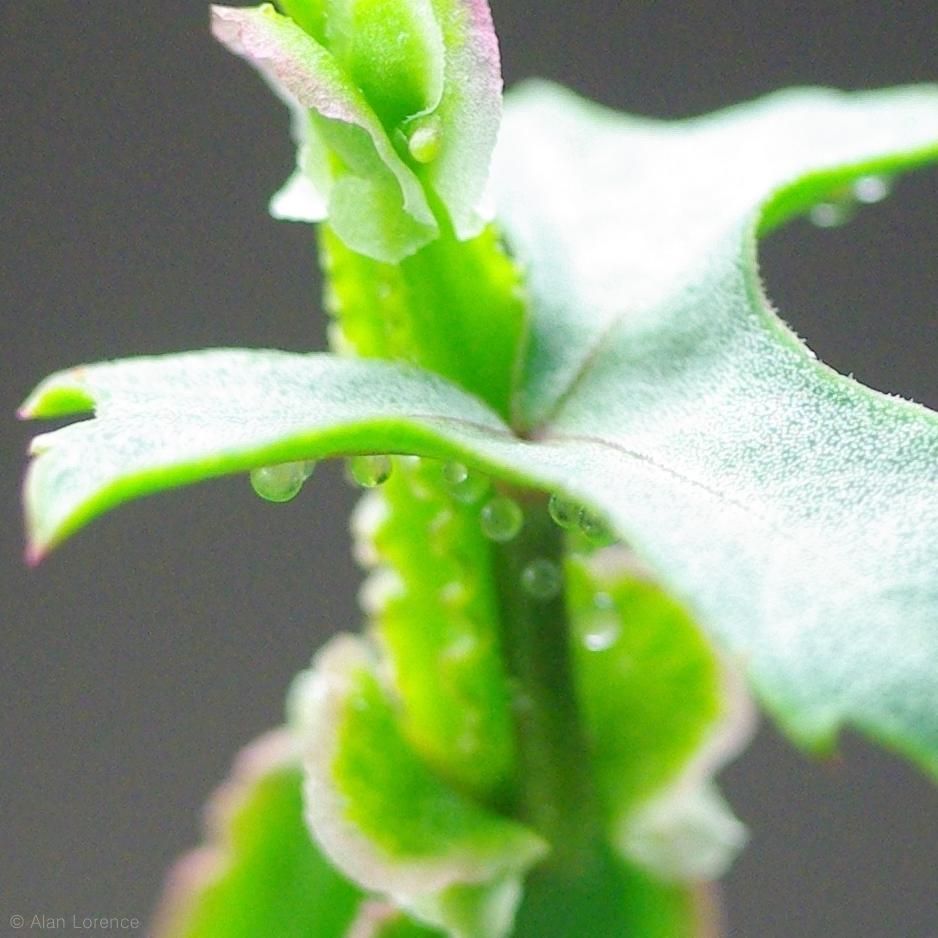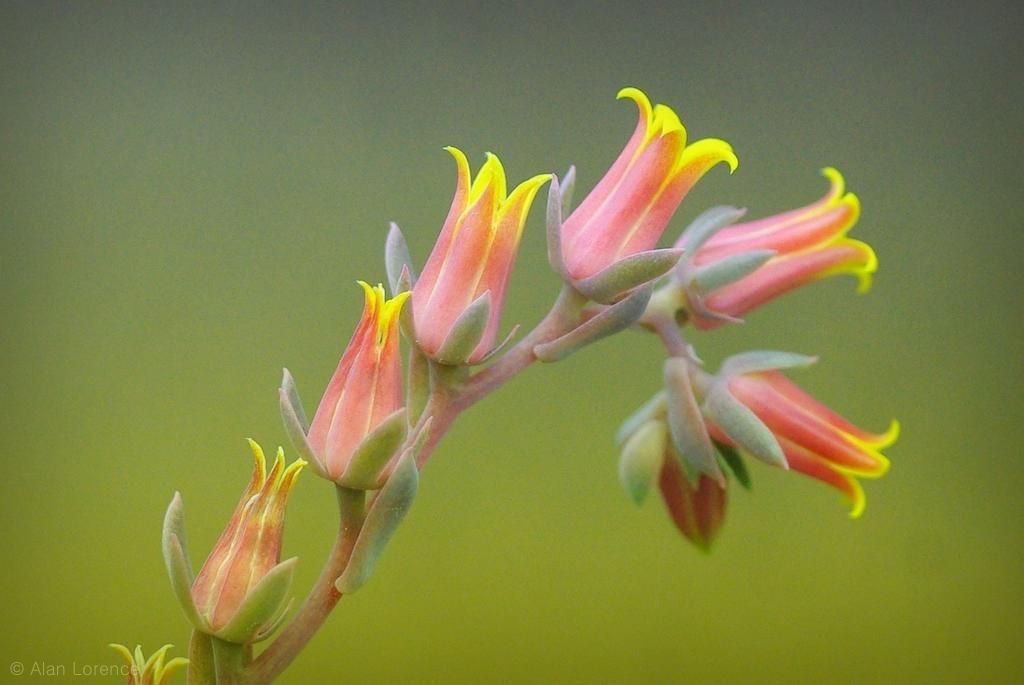Today I share three discoveries with you, two of which have left me with questions. The first are these tiny spheres on my Cissus quadrangularis.
When they first showed up I was convinced that they were just exuding from the plant's pores, showing up at the tips of the tiny ivy-like leaves...
...but now they're everywhere, making me wonder if something else is going on. They're dry, no longer drops of moisture, and will fall if touched. There is no sign of insects on this plant so for now I'm just curious, not worried.
Is this normal?
The second discovery might not involve a question:
It appears that although my plumeria did not actually flower last year, it started to produce a bloom and that was enough to cause the plant to branch. It looks like I'm going to have a bushier plant this summer!
The third item is an ID question, based on these lovely little blooms:
I'm pretty sure that this plant, given to me as part of the massive plant gift I received late last summer, is an echeveria:
Do the blooms help in getting a species ID?
I love scrutinizing the indoor garden during the winter!
.








I'm curious myself what those glass like beads are, fascinating!
ReplyDeleteI think the droplets are called guttation...if my memory serves.
ReplyDeleteYes, the succulent with the yellow flowers is an echeveria, but I can't tell you the species. There are relatively few echeverias with yellow flowers. Most have orange/red flowers.
ReplyDeleteThe drops are curious love to know what it is. I think it might be Echeveria Elegans here is a link http://sperlingnursery.com/plants-and-products/cactus-succulents/echeveria/echeveria-elegans/ to check out and see what you think. They do have flowers that look like yours.
ReplyDeleteYou're seeing "pearl glands", which are common in many Vitaceae. See:
ReplyDeletehttp://viticulture.hort.iastate.edu/info/pdf/gerrathpearlglands.pdf
DC: Thanks! I didn't think to put one under the microscope -- I'll do that soon!
ReplyDeleteWhat did you do to make the Echeveria Elegans bloom? So pretty!
ReplyDelete